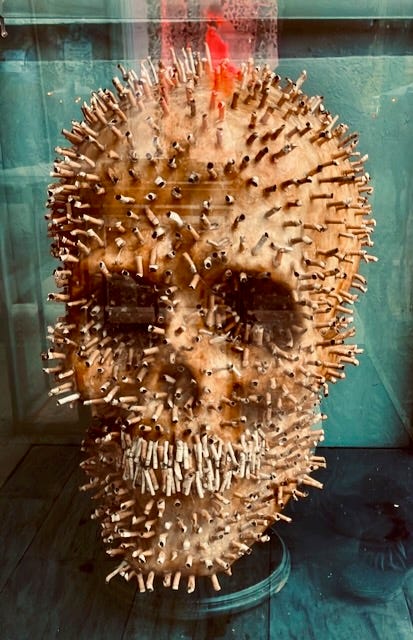I want you to imagine a possibility for a moment. The problems in every relationship you have in your life starts with you. Change you, change the relationship. Demand change of an other, lose something vital in the relationship. We cannot demand another person change for us and have the change be way we want it. Whenever we demand or force, we wound.

We need to develop trust in our relationships and all the people in them, including trust in our self. We need to develop a solid ground in our relationships. When a relationship has a container of solid ground and mutual trust, growth happens effectively in a relationship. Everyone in the relationship plays a part to cultivate a relationships aliveness. Competition diminishes. By honoring the unique needs of everyone in a relationship, we vitalize and revitalize the relationship itself.
Ultimately, to be effective, transformation has to be organic and come from within.
What greater place is there to discover the freedom of self growth with full responsibility than in our relationships to those we love?
Why me?
I’m passionate about how relationships can uncover wounds and heal them in unfathomable ways when deep love, regard, friendship, and trust exist. I also know how easy it is to lose track of the most important factors of a relationship when wounds are triggered. I spend a lot of time thinking about how relationships thrive. I also spend a lot of time tracking how they decay slowly into more and more unworkable ground.
I’m happily married with many years of successes and failures under my own belt of relational experience. I’ve also raised three children. Raising children is its own crucible of relational learning in a way that is completely unique to the nature of the indiviudal and the sacred bond of motherhood and family. I work with couples and families in my practice who are seeking guidance in surviving, reviving, or ending relationships. I see relationships through the lens of compassion and understanding, often being able to take in the bigger picture while simultaneously tracking all that is getting in the way of connection. This process is enmeshed for me due to how I see and track energetic communication as well as the words being spoken and the actions that are driving relationships.

Relational Decay
Relationships don't just die. They decay. Love, friendship and attraction slowly degrade as we pigeonhole our loved ones into an identity based on our own insecurities, demands, defenses, and shut downs. When we expect someone to know us better than we know ourselves or to act differently without communication, we are entering into decay. The shut downs and way sof expression that we fall into in the space of wound - transference, projection, acting out, emotional outbursts, avoidance - are all caused by roots that go deeper than we want to believe. This is why we often focus on change coming from the other. It is easier to demand another person change than do the honest work of self transformation.
Decay can be most obvious in relationships when communication turns into breakdown. Here is where nothing can be worked out without recycling old hurts in familiar patterns that are themselves harmful to the relationship. What causes the breakdown of conversation, interest, understanding, and mutuality has happened over time, not in a specific moment. Way before a conversation turns into fighting or blaming, there have already been patterns that undermine the relationship worming their way in and fueling disagreements. Interactions and habitual lack of reactions (that we are all susceptible to falling into by the way) hurt a relationship more than we realize.
The roots of relational decay happen in the everyday.
When we first fall in love with a person, everyone in the relationship is messed up, right? We don't fall in love with a person only after they've evolved into a perfect person or we have. We all fall in love with someone who is imperfect. Somehow we love them. Sometimes we even see who we fall in love with as perfect, at least for us. Yet at some point in every relationship all the inevitable messed up lack of perfection starts to go from a reason to love someone to a reason to not love someone. We move from wanting to connect, share more, immerse ourselves in the other into decay. We start making excuses to disconnect, notice faults, demand, separate, and shut down.
What is really going on here?
Why do we habitually turn on those we love?
What is it about us humans that makes it so that the more we feel secure, the more we are likely to use that security as an excuse to reject the other?
I want you to consider for a moment that all relationships have an aspect of death in them. It is inevitable that death has to be faced for life to embraced.
Writing about underlying decay factors in relationships is meant to provide you with an ability to revive your relationship before it’s too late. I am not going to write about the outward excuses so many of us tell ourselves as a reason to justify leaving a relationship or losing interest in a partner. Instead, I am looking even deeper to support you doing the deeper work of keeping your self engaged in the relationship in a way that will keep the relationship interesting for you, regardless of the other person’s ability to change, be a better person, or become the person you want them to be.
Five Underlying Causes of Relational Decay
Listed below are five underlying causes of relational decay in no specific order. These are all absolutely full of possibility. Why? They are dependent on only one person doing their own work for the relationship to change. That person? YOU. Do you understand what I am getting at here?
You get to do your work and not have to make anyone else change who they are to accommodate you. You get to grow and in your growth, watch the relationship transform. We could also say you get to change and observe how you as yourself changes in the relationship. You can challenge yourself to consider being more available, relational, interested, and curious about your self…and your partner. The crucible of change for every one of these factors is you.
Individual change and growth is what causes every relationship to ultimately change in a meaningful and empowered way for both people in the relationship.
1. Narcissistic Metabolism of the Other
2. Holding the Other Hostage
3. A Lack of Willingness to Explore or State Needs
4. Inability to Positively Engage in Negativity
5. Codependent Enmeshment
Now obviously all of these are going to get their own post. They are too complex to just list and then not discuss futther. I am stopping here today. Over the course of the next few weeks, I will be writing about each of these factors individually. If you want to read more, here is a short teaser on the first factor, with a more fully available preview to paid subscibers.
1. Narcissistic Metabolism of the Other
Narcissistically metabolizing an other means putting them in a defined box where you decide how they are going to act, react, and interact in any given situation. You have no interest in the possibility of something different or new happening and only experience what you expect. You have no capability of understanding your own lack of interest in them behaving outside of what you expect or demand.
How to tell when you are in a narcissistic projection with an other.
You KNOW how someone is going to act or react to a given situation.
You AVOID a situation based on what you know is going to happen.
You GIVE UP trying something new with a person because you don’t believe it is possible for them to want to do it with you.
You ALLOW a person to act or react a specific way without telling them how it makes you feel.
You CLOSE DOWN in response to a perceived reaction and stop trying new things in your relationship.
I love the word narcissism. Don't you? It's one of those words that brings up instant judgement, labeling, and separation. The tendency is to work really hard to avoid being this awful thing that actually everyone is at certain points in their lives. In relationship, being narcissistic points to being closed down and unable to have interest or bandwidth for the people we love.




